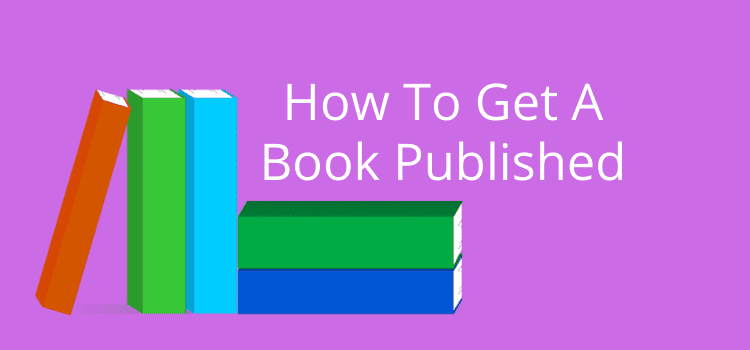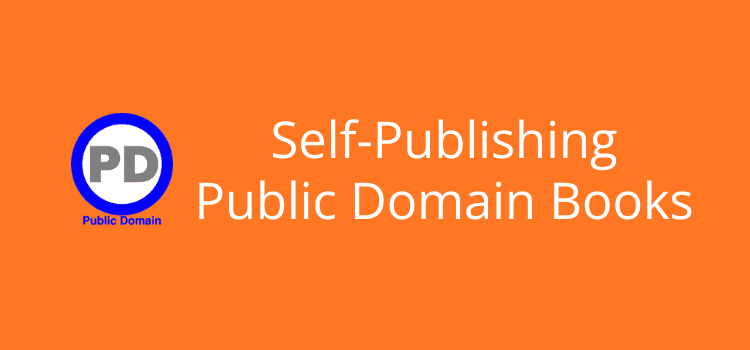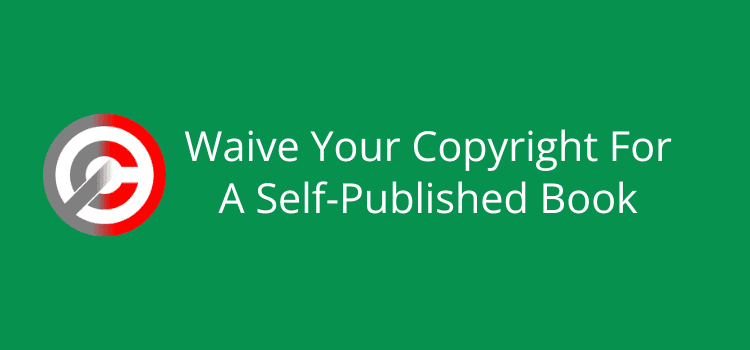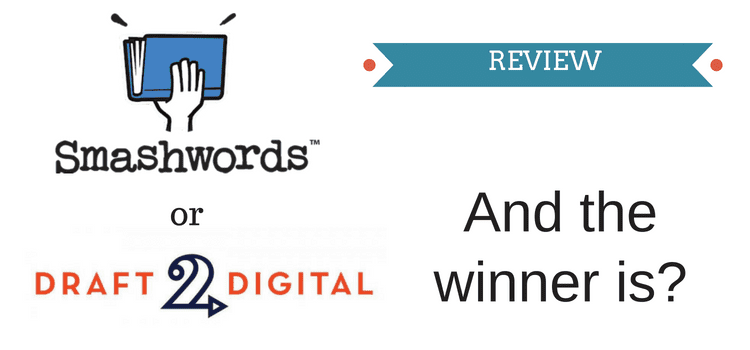
Do you want to know how to get your book published?
The publishing world has changed dramatically in recent years. Self-publishing has disrupted the publishing industry and caused all sectors to reconsider how to publish a book in this new book market.
For first-time authors, it can all be a little confusing. But if you take the time to understand the different types of publishing options that are available, you will make better choices.
If you are writing your book, it’s a good idea to start researching the pros and cons of each publishing route.
How to get a new book published today
You have many choices, so you should investigate every option before you rush into publishing your book.
Each one comes with advantages and disadvantages.
It can depend on the type of book, genre, or target readers you are aiming for. Will your book have mainly local appeal?
If you write and publish a short story collection or poetry, it is not the same market as long-form romance fiction. Are you writing self-help, personal development, or historical nonfiction?
Depending on the type of book you intend to publish, you need to find the best publishing option for you.
You also need to think about how you or a publisher will market and promote your new book before and after you publish it.
This is probably the most demanding aspect of book publishing today.
Another consideration is what versions you want to publish.
Do you only want to publish an ebook on Amazon? Or do you want to publish a print-on-demand paperback or a hardcover book? You also have the choice to publish an audiobook.
Yes, there are many considerations when you start thinking about getting a book published. So, take your time and do your research first. Here’s a list of your publishing options.
1. A traditional publisher wants your book
Unless you are a very well-known celebrity, extremely newsworthy, or a high-profile politician, this route is impossible for a new author.
Big publishing companies like Simon & Schuster, Random House, or HarperCollins will not be knocking on your door with a book contract.
However, if you do fit the bill of being a media highflyer, expect a huge advance in return for your signature.
The five big publishing houses are always fighting to find the BIG book for the next year.
They have their wallets open for an author they think has enough name recognition, pulling power, or even infamy to sell 50,000 copies in the first week.
Generally, this is for nonfiction books. Fiction books are rarely chased, with the most recent exception probably being Fifty Shades of Grey. This shows that it is not totally impossible.
If you are lucky, you might not have to write a book. Publishers sometimes hire a ghostwriter to do all the grunt work.
But if publishers are not knocking at your door, read on for more realistic options to get your book published.
2. The traditional route
Most established authors have chosen the traditional way of getting their books published.
The first step is to find a literary agent to represent you. Your agent will then look for suitable publishing deals for your book.
But it is not easy to find an agent willing to represent you. If you are a new author, you will need to write a book proposal and a query letter to many agents in the hope of finding one who likes your idea.
You need to prepare yourself for a lot of rejection letters and even no answers during this process.
Agents and publishers work closely together and know their business. They have an instinct for what will appeal to readers in their niche part of the book market.
Because of this, you should check with each agent you plan on approaching and make sure that your book is a good fit for what they are looking for. Most agents state this clearly on their websites.
If you have written a science fiction book, there is no hope that an agent looking for period romance will even look at your proposal.
The big benefit of this option is that if you do succeed, you will have access to professionals such as book editors and book cover designers. Your primary focus will be on writing, with your agent and publisher looking after everything in the publishing process.
However, it takes a long time for a book to go to press. Expect to wait around a year between signing your contract and seeing your book in print.
More reading: How to Write a Book Proposal
3. Small press publishers
This is now a very popular option to get a book published, especially for new fiction writers.
There are thousands of independent small press publishers around the world. There are sure to be many in your country or even some in your local area.
Like the second option, you may need to send a query letter and perhaps some sample chapters. It will depend on the process that each small press takes.
The best way is to check their website and look for the submission guidelines. They don’t usually ask for a full manuscript in the first instance. If you prefer, you could contact them and ask how you can submit your book proposal.
There are so many variations as to what a small press publisher does, so you need to check very carefully.
Because you are looking for a publishing contract between you and the publisher, you don’t have the security of an agent acting for you.
Because of this, it is always wise to ask a lot of questions and seek legal advice before you sign a publishing contract.
One question you must always ask is what happens to the rights to your published work if the publisher goes out of business.
Many authors have lost the rights to their books under these circumstances.
If you need help publishing your book, a small press publisher with a good reputation is a great option.
But don’t rush in before you do your homework, and be sure that the publishing contract fulfills all your expectations. Most importantly, make sure you use a reliable publisher.
You can verify the reputation of many small press publishers by using the Alliance of Independent Authors (ALLi) website to check the Best and Worst Publishing services.
4. Self-Publishing
Without a doubt, self-publishing is the easiest and most popular route for authors and writers today.
The biggest advantage is that you are guaranteed to get your book published. You will be doing all the work on your book and publishing it yourself.
If you are new to publishing ebooks on Amazon Kindle Direct Publishing (KDP), Smashwords, or Draft2Digital, it can be a step-by-step learning curve.
If you want to self-publish in paperback or hardcover, you can use print-on-demand services.
It is not difficult because thousands of authors like you have successfully self-published.
However, you will be responsible for everything. You will need to take the time to learn what you can do and what services you will need to purchase.
In particular, most authors know that buying a professional book cover and hiring an editor or book designer are areas that can help in achieving some success.
Generally, though, the costs to self-publish are minimal.
Another big advantage of self-publishing is that your book royalties will be paid monthly, directly, and in full to you by each publishing service for ebooks or print-on-demand paperback sales.
When you sign with a traditional or small press publisher, they will act as the middleman and pay your royalties after deductions, usually on a quarterly, semi-annual, or annual basis.
The most difficult aspect of self-publishing is marketing and promoting your book. Many new authors fail badly on this front.
Just because your new book is available on Amazon doesn’t mean readers will buy it.
You need to work extremely hard on your book promotion and positioning on ebook retailers.
There are many, many elements to book promotion.
But in general, you will use your blog, social media, and some paid advertising or book promotion.
5. Vanity publishing
Vanity publishing is one option that can come with some unpleasant surprises and long-term issues.
The problem with vanity publishing is that inexperienced new authors fall into the trap of thinking that a vanity publisher will do everything for them.
This is true of the production process. But it is not at all true for the most important part, which is marketing, promoting, and selling your book. You can pay a lot of money for books you can’t sell.
With all the other options, the publisher pays the author. When you publish with a vanity press, it is you, the author, who pays the publisher.
Many new authors don’t understand this when they sign a contract, especially if the publisher has been aggressive or high-pressure selling to get your signature and your money.
There are some reputable publishers, but be careful about which vanity companies you can trust.
Unless you have a lot of money to burn, paying thousands of dollars to a vanity publisher is not your best option to get a book published. No amount of money will make miracles happen when you publish a book.
You should really consider finding a small press publisher or using an assisted self-publishing company.
One last piece of advice about vanity publishers. If you get an unsolicited offer to publish your book, be very careful. It is very often a scam.
It is such a common practice now to lure new authors. There are thousands of books published every day on Amazon. Scammers follow this list of new books to find and prey on new and unsuspecting authors.
No legitimate publisher or literary agent would ever use this means.
Summary
You realize that the first option is not going to happen in reality unless you suddenly achieve overnight fame.
The other reality is that vanity publishing is a last resort and very expensive. I would strongly advise any new author to be extremely careful when considering this option. You can pay thousands of dollars for a book that may never sell more than a few copies.
It leaves you with three viable options. If you’ve written a book and want to get it published, choose either self-publishing, traditional publishing, or find a small press.
One good idea is to take it one at a time and try to find a literary agent first. Then, if you are not successful, after a while, you can try to find a good small press to work with you.
Then, you always have the option to self-publish if you prefer.
Of the three, there is no one best or better option. It will depend on what you want to achieve. If you have the necessary skills and determination, self-publishing can be very rewarding.
But if you are not confident in your marketing and promotion skills, a small press might be a better option for you.
Take your time, and don’t rush into publishing. Make sure you know what your options are first, and then you can make the best decision.
Related reading: 10 Different Ways You Can Publish Your Writing



